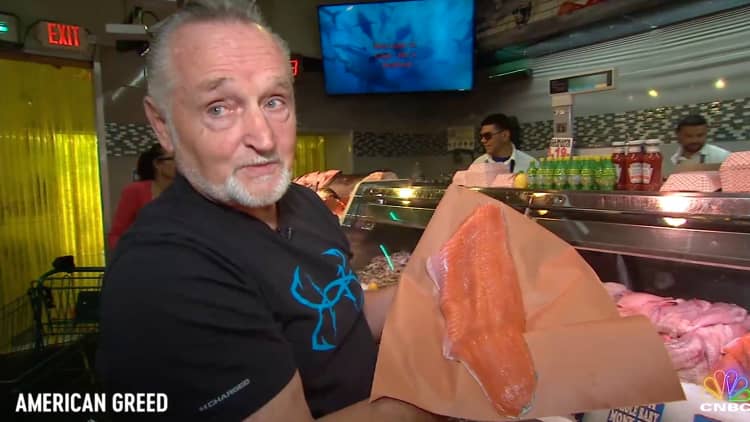
Tony Maltese, commercial fisherman and former director of seafood at Fairway Market chain of grocery stores, shared with CNBC his best tips for buying high-quality, fresh fish while browsing the fish market at John's Farms in Plainview, New York. Maltese has over 50 years of experience in the seafood industry.
No smell is the best smell
While many might assume that a strong fishy odor is a sign of freshness, Maltese has a different opinion.
When walking up to the counter, "If you smell fish, leave," he said. "Don't buy any fish there."
In fact, the U.S. Food & Drug Administration states that raw fish "should smell fresh and mild, not fishy."
Make sure you're not the only customer
Before you even inspect the fish that's on sale, take a look around the store.
"Don't buy in a place that's dead," Maltese said.
A crowded fish market is a good indication that the inventory is being replaced frequently and not sitting out all day.
Use your senses
Once you decide what to buy, Maltese offered advice on how to use your senses to ensure you're getting the best cut.
In addition to there being no fishy smell, the fish should look bright and crisp, and the eyes should be round and not sunken in.
Also take a look at the gills, which should be red. An old fish won't have "any blood," said Maltese. "It's going to be all drained out."
How to tell if your salmon is wild or farm-raised? Look at the white line of fat, which will be thicker on farm-raised salmon.
Wild salmon have to "swim around to eat. It doesn't get fed and stay in one spot and get fat," said Maltese.
Lastly, when in doubt, Maltese recommends buyers always read the labels. "It's actually a law" that labels must provide the location of origin, if the fish is thawed and whether or not it's farm-raised.



